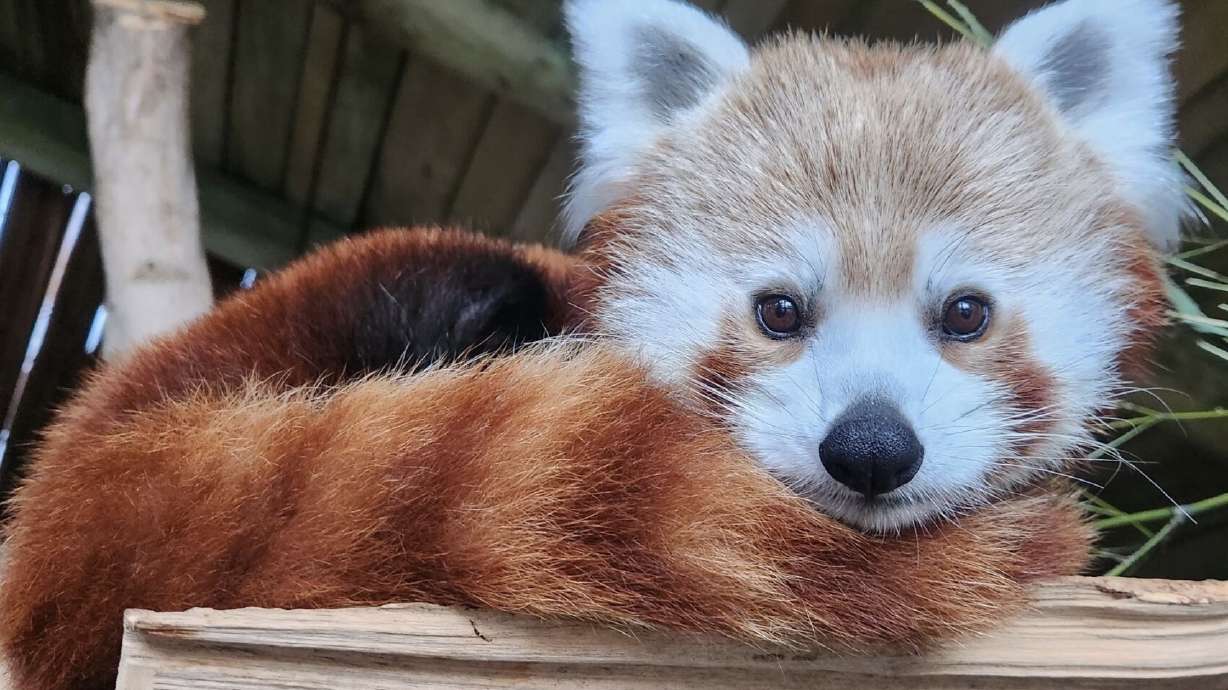Estimated read time: 2-3 minutes
This archived news story is available only for your personal, non-commercial use. Information in the story may be outdated or superseded by additional information. Reading or replaying the story in its archived form does not constitute a republication of the story.
SALT LAKE CITY — Priya, a 5-year-old female red panda who gave birth to Utah Hogle Zoo's first cub earlier this year, died last week after falling ill, zoo officials say.
Zoo officials announced Priya died on Wednesday in a statement Saturday, saying it happened after she was transferred to Advanced Veterinary Care treatments after her condition had become "critical." It's unclear what caused the animal to fall ill, but the zoo's animal health team is conducting a necropsy and additional testing to figure out her cause of death, officials added.
Priya came to Hogle Zoo from Pueblo Zoo in Colorado last year, joining a Mow Mow, a male red panda already at the Janet Quinney Red Panda Exhibit. The move came after a recommendation from the Association of Zoos and Aquariums Red Panda Species Survival Plan to help repopulate the endangered species.
She gave birth to a cub named Dorji in June, marking the first cub of its species to be born at the zoo since red pandas were first brought to the zoo in 2002. Zoo officials celebrated Dorji's birth at the time, pointing out that the species' population has dropped 40% over the past decade.
Red pandas are small mammals, close to cats in size, that like to snack on bamboo. They're native to the eastern Himalayas and southwestern China and typically live in elevations ranging from 4,800 to 13,000 feet, Hogle Zoo officials note. The species typically has a life expectancy of about 8 to 10 years in the wild and 15 years at zoos, but the oldest ever recorded is 23 years old, per the Red Panda Network.
The World Wildlife Fund estimates that there are fewer than 10,000 red pandas left in the world, but there also may be as few as 2,500 red pandas left in the world, the Red Panda Network adds.
Its population has suffered as a result of several factors, including native habitat loss to different forms of development, climate change and poaching, though countries have laws in places seeking to prevent poaching and pelt trades, according to Smithsonian's National Zoo and Conservation Biology Institute.
This is why many groups, including zoos, have worked to breed more of the creature.
Hogle Zoo officials said Saturday that Priya was "an attentive mom" to Dorji and that the cub is "doing well" as he grows up.
"For an endangered species like red pandas, every birth creates opportunities for future generations," they wrote in a statement. "With the birth of her cubs, Priya was an excellent ambassador for her species and leaves a lasting legacy."









